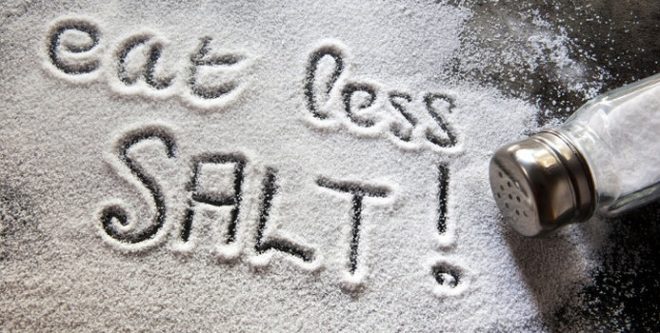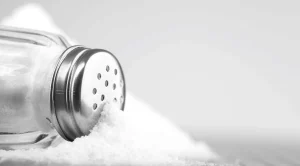
Signs You are Eating Too Much Salt
Salt is very important for our health, but too much can cause problems.
Salt or sodium chloride is a mineral that plays an important role in the functioning of our body. However, this does not mean that you can eat as much salt as you want! Studies show that consuming too much salt can lead to health problems such as high blood pressure. However, it is easy to eat too much salt because most of it comes from everyday foods such as bread and meat products. We also add it when making food.
Why do we need salt?
Although consuming too much salt is bad, salt is important for our body and here’s why:
- Salt helps maintain fluid balance in the body, which is important for cell function, neurotransmission and muscle function.
- Sodium is a salt blocker and plays an important role in controlling blood pressure. It helps maintain blood volume and fluid balance, which are important for cardiovascular health.
- Sodium ions are essential for sending electrical impulses through blood vessels. This process is important for muscle contraction, including heart contraction.
- Salt is necessary for muscle activity. It helps contract and relax muscles, as well as those involved in breathing and digestion.
- Salt helps the body retain water. Adequate salt intake ensures that cells and tissues remain hydrated and function properly.
- Chloride is another salt component that helps maintain the body’s acid-base balance, which is important for overall health.
- Salt plays a role in the absorption of some nutrients such as glucose and amino acids in the small intestines.
What are the signs of eating too much salt?
According to the World Health Organisation, your daily salt intake as an adult should be less than one teaspoon. Consuming too much salt can have negative effects on the body, and there are many signs that you are consuming too much salt.
1. High blood pressure
Eating too much salt can cause high blood pressure, which is a risk factor for heart disease, stroke and kidney disease. Experts say salt retains water in the blood, increases blood volume and dilates blood vessels.
2. Swelling
Consuming too much salt can cause fluid accumulation in the body, causing swelling or edema, especially in the hands, feet, ankles or abdomen. This is because salt causes the body to retain water to maintain fluid balance.
3. Frequent Thirst
Eating too much salt can make you thirsty. This is because salt draws water from the cells into the bloodstream, further diluting the sodium and causing the body to become dehydrated.
4. Kidney problems
Eating too much salt can damage the kidneys, which play an important role in filtering excess water from the blood. Over time, this condition can lead to kidney failure and increase the risk of kidney disease.
5. Palpitations or irregular heartbeat
Eating too much salt can affect the balance of electrolytes such as sodium and potassium in the body. This deficiency can lead to heart disease or irregular heartbeat, especially in people with heart disease.
6. Frequent Headaches
Eating too much salt can cause dehydration and changes in the blood flow. This can cause headaches or migraines in some people.
You should reduce your salt consumption, think carefully about what you eat in restaurants, cook with fresh ingredients, and use herbs and spices to enhance flavour rather than relying solely on salt.

What to do if you consume too much salt?
If you are consuming too much salt and are experiencing symptoms such as dehydration or other discomfort, there are a few steps you can take.
1. Drink lots of water
Experts say one of the best ways to get rid of excess sodium in your body is to increase your water intake. Drinking water helps dilute the concentration of sodium in the blood and stimulates urination, thereby removing excess salt.
2. Eat more foods rich in potassium
Potassium helps balance the effects of sodium by promoting the excretion of sodium through urine. Eat potassium-rich foods such as bananas, oranges, spinach, potatoes and tomatoes to help restore electrolyte balance.
3. Don’t eat too much salty food
Choose foods low in sodium to avoid excessive salt intake over the next few meals. Avoid processed or packaged foods, fast food, sugary foods, and restaurant meals that are often high in sodium.
4. Include foods containing magnesium
Experts say magnesium can help regulate sodium levels in the body. Include magnesium-rich foods like nuts, green leafy vegetables, seeds and whole grains in your diet.
5. Drink Herbal tea
Herbal teas such as dandelion tea or green tea have diuretic properties; This means they aid urination and reduce fluid retention.
6. Exercise
Engage in light to moderate physical activities such as walking and yoga. This can help improve blood circulation and support fluid movement throughout the body.
7. Use lemon or lime juice
Squeeze fresh lemon or lime and mix its juice with water. This improves flavour and provides a source of potassium.

Salt is essential for health, but consuming too much can lead to health problems such as high blood pressure and increased risk of heart disease. So, consume salt in moderation and pay attention to the source of sodium in your food.

